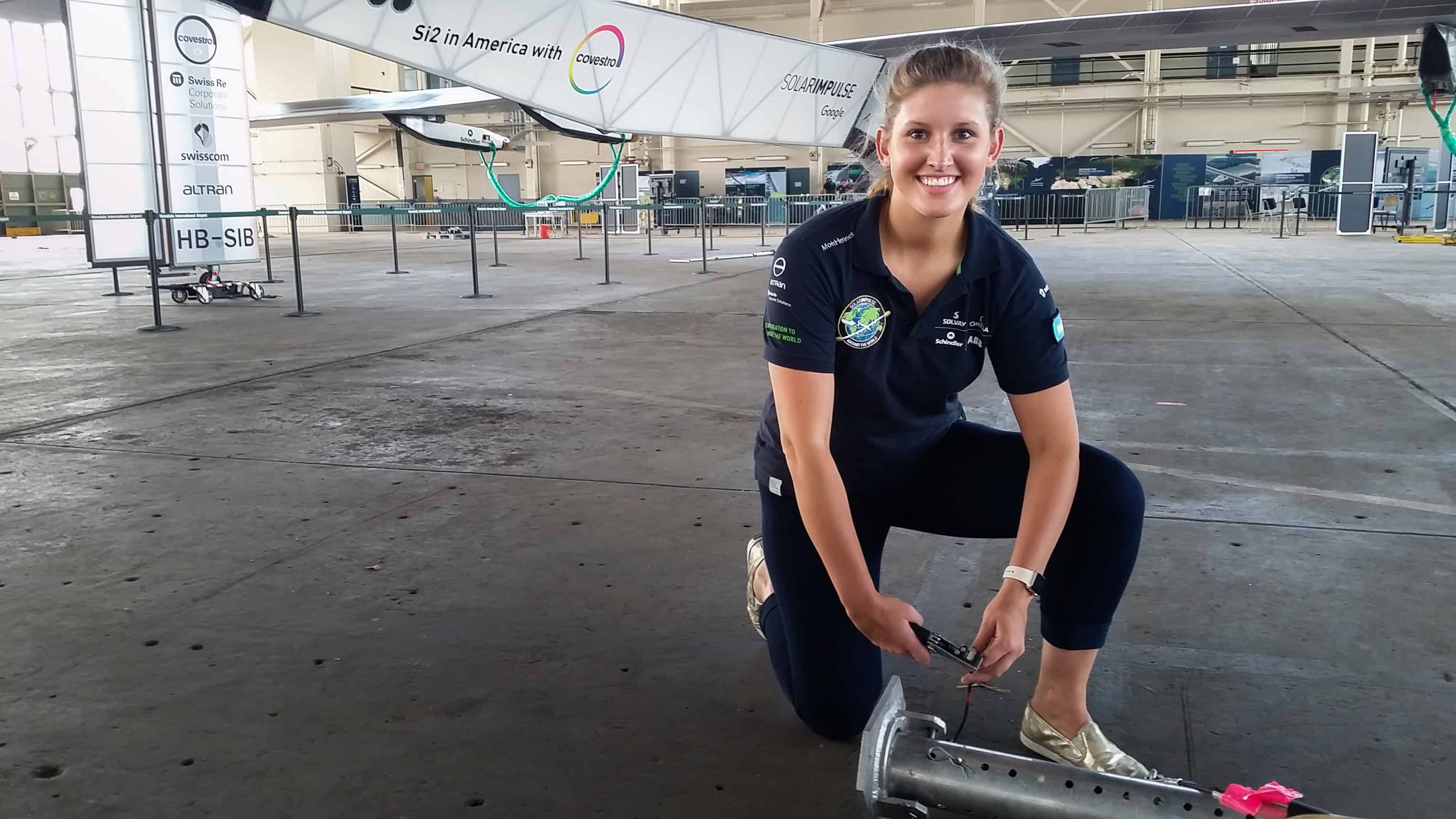From planes to cars, there’s no stopping 25 year-old alumna Paige Kassalen, who made history with the world’s first solar-powered flight.
One year after graduating from Virginia Tech, Paige Kassalen '15 was the youngest person responsible for the takeoff and landing of the Solar Impulse, the first solar-powered plane to make a trip around the world. Of the 16-person crew, she was also the only American and one of two women involved.
It’s no surprise, then, that one year after her journey with Solar Impulse, Kassalen made the Forbes Magazine “30 Under 30” list, which annually profiles 600 of what the magazine calls the "brightest young entrepreneurs, innovators, and game changers."
“That was a moment where your heart drops and you’re just so confused about how you achieved this career goal that you didn’t know would actually be possible,” said Kassalen, who was also featured in Teen Vogue.
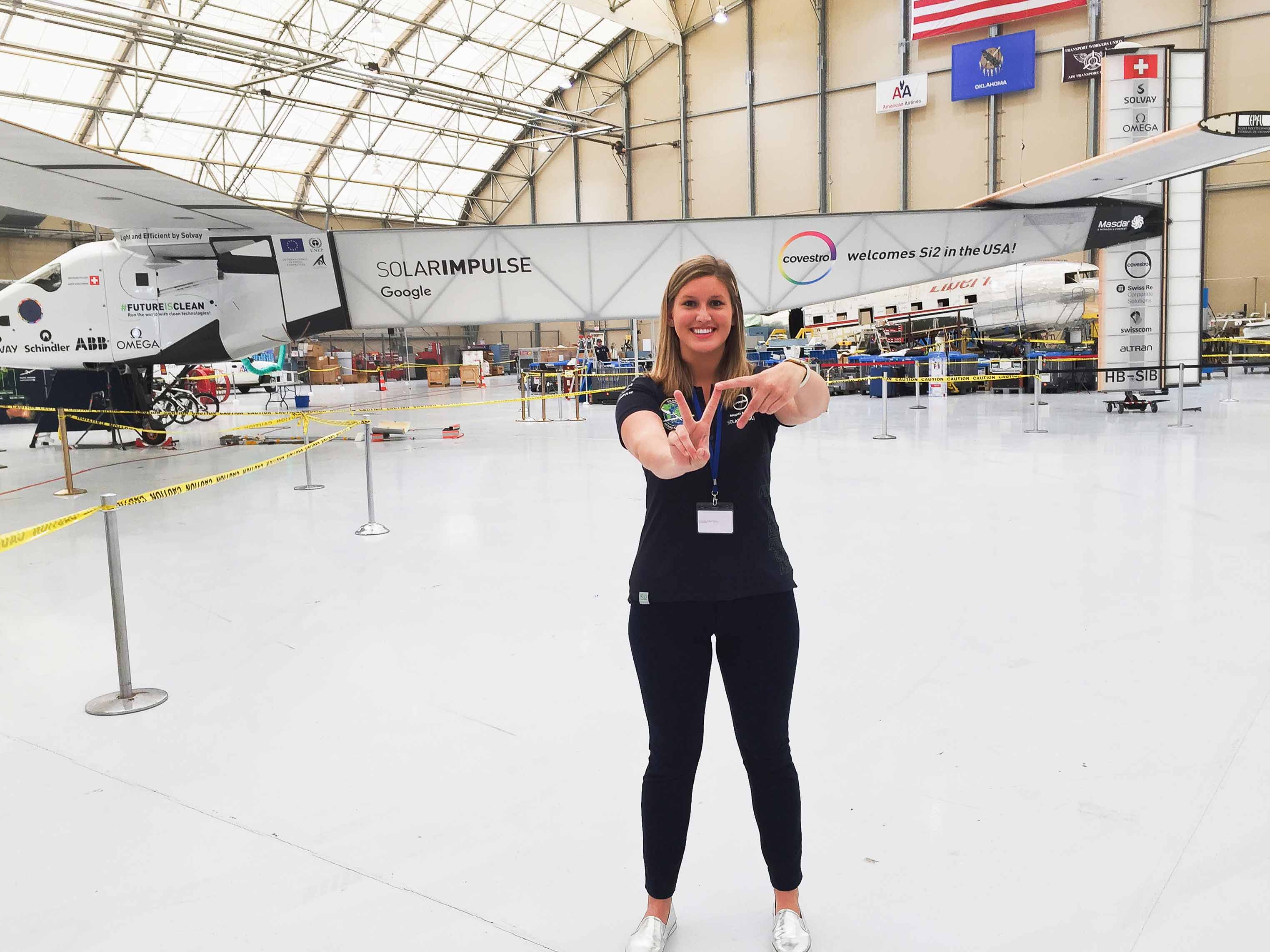
“The number of women in engineering fields is increasing, but the number of women still isn’t close to reaching the number of men,” Kassalen said, who was an electrical engineering major at Virginia Tech. “Right now, women in engineering are doing more than just their jobs. They are laying the foundation for the next generation of engineers to join the workforce. That is why it’s important to use your voice and shape the culture to be something welcoming to [more women] as well.”
Kassalen was far from afraid to use her voice by reaching out to professors and new opportunities that came her way. When challenges arose, her professors pushed her to succeed.
“Never once did my teachers say, ‘Paige, this isn’t for you.’ They said, ‘Paige, I know you are smart and you can do this. Let’s figure out what we need to do because giving up is not an option,’” Kassalen said. “That support alone pushed me through difficult times where I questioned my abilities to succeed.”
“That was a moment where your heart drops and you’re just so confused about how you achieved this career goal that you didn’t know would actually be possible." -Paige Kassalen
In addition to providing her with a strong support system, Kassalen credits Virginia Tech’s College of Engineering with strengthening her ability to problem-solve.
“When I was asked to join the Solar Impulse team, I was scared that I didn’t have enough experience, but that was not going to stop me from doing this once-in-a-lifetime job. It was just like the projects I would do at Virginia Tech: We would learn techniques to problem-solve, but it’s not like there was a magic solution that could tell you the answer,” Kassalen said. “There was no textbook for Solar Impulse, but there was definitely a lot of problem-solving and I was an expert at that after my studies at Virginia Tech.”
Even before she started her undergraduate degree, Kassalen attended one of the college’s Center for the Enhancement of Engineering Diversity’s summer camp programs, C-Tech². She says that was when she “fell in love with the campus and engineering program.”

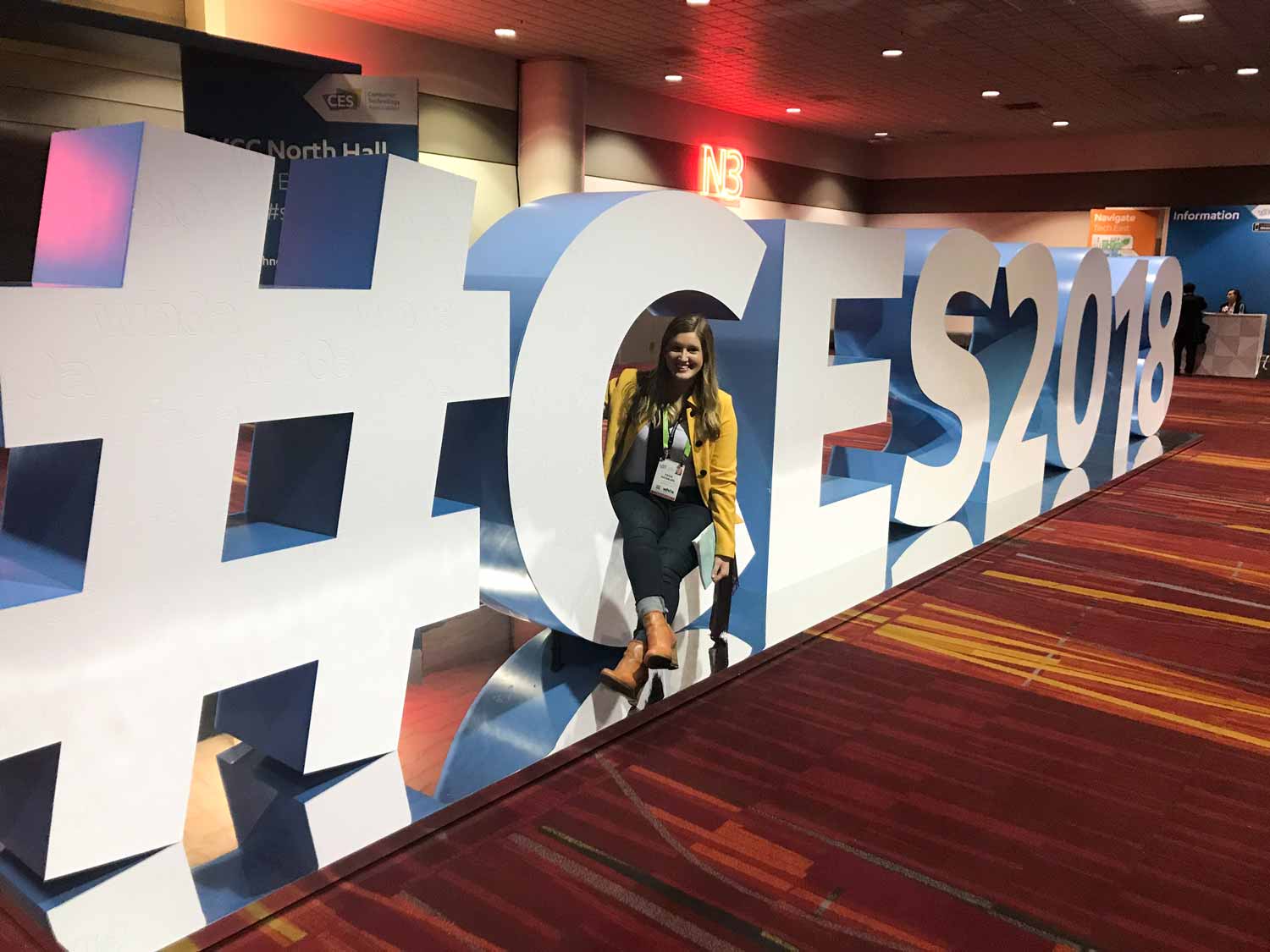
The skills that she developed at Virginia Tech and Solar Impulse provided the foundation for the past three years she’s spent at Covestro, a raw materials supplier and manufacturer. Kassalen is working on identifying and developing high-performance materials that will withstand the wear and tear of hundreds of people getting in and out of autonomous vehicles built for ride-sharing purposes.
“This is something that always puzzles my electrical engineering friends,” Kassalen said. “As an [electrical engineer] I think about sensors or programming when I think about autonomous vehicles, but from a materials perspective I think about how high-tech materials can enable that system to reach optimal performance.”
Her work with Solar Impulse inspired this new perspective. “At 28,000 feet, the cockpit was extremely cold. An HVAC system couldn't be added because it would require too much power and exceed the weight limit, so they just changed the material to something better insulating,” she said.
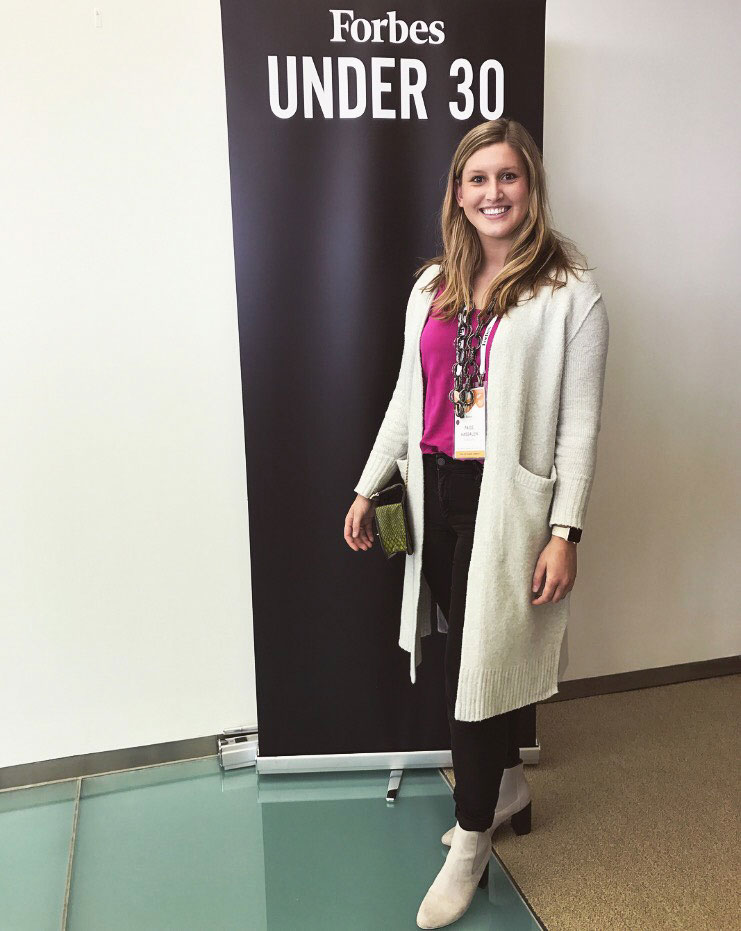
Teaming up with chemists, Kassalen now leads projects developing new materials, anywhere from lightweight electric vehicle battery packaging, to creating coatings for autonomous vehicle sensors in order to improve visibility.
She believes that autonomous vehicles will be “the biggest technology revolution of our time.”
According to Kassalen, this is because autonomous systems and vehicles are one way to provide equal access to mobility for everyone.
“When vehicles are autonomous, electric, and shared, the cost per mile could be much cheaper than owning a car, which opens doors for people who struggle to find jobs because of transportation,” Kassalen said. “Job opportunities are not the only reason people need to travel: some people don’t have access to grocery stores or health care. Autonomous vehicles could be purposefully built to be a grocery store on wheels or a pharmacy on wheels.”
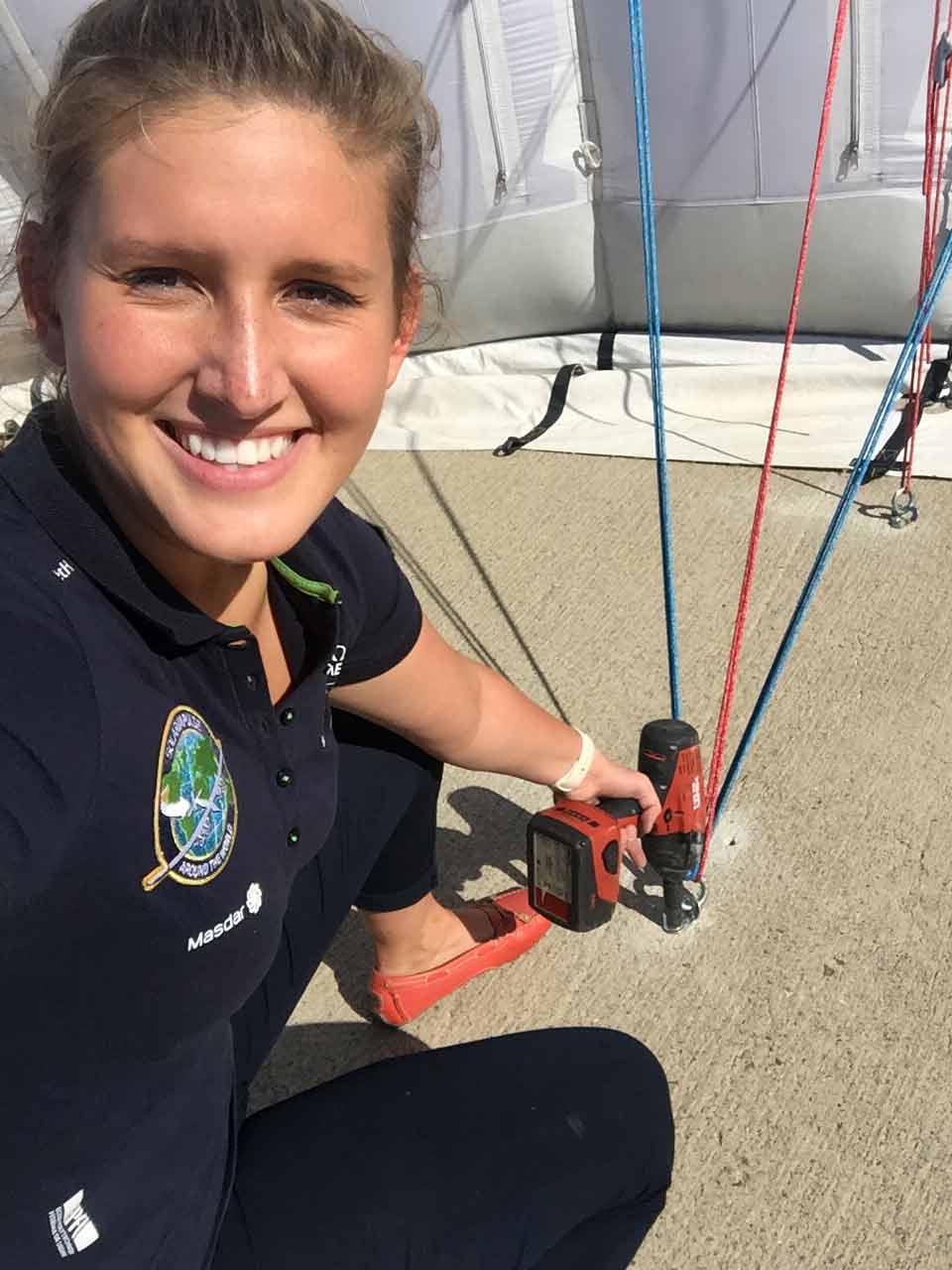
In addition to working on autonomous vehicles, Kassalen hopes to soon pursue an MBA, start her own company, and give back to Virginia Tech however she can.
“I really feel like I am who I am today because of my experience at Virginia Tech, and I want to thank them for that,” she said.
Kassalen was recently elected to be on Virginia Tech’s Bradley Department of Electrical and Computer Engineering Industrial Advisory Board. She is no stranger to juggling multiple leadership roles while simultaneously giving back to her community through volunteer work.
In addition to staying on top of her coursework throughout her undergraduate years, Kassalen was a departmental ambassador who gave tours every Friday, president of the Virginia Tech student chapter of the Institute of Electrical and Electronics Engineers, on a design team, vice president of public relations for the Tri Delta sorority, led the development of the Solar Powered Derby for the Blacksburg Cub Scouts, on the homecoming court, and a member of the Scuba Club at Virginia Tech.
“No one is one-dimensional. I wasn’t just an electrical engineer,” Kassalen said.
Still, she knew why she was an electrical engineer in the first place, and advises other prospective engineers to find their motivation before jumping into the rigorous coursework and demanding field.
“If you are considering being an engineer, really figure out exactly why. A lot of people say ‘I did engineering because I liked science and math.’ That is great, but when times get tough, you need to have passion driving your decisions,” Kassalen said. “I remember being so upset about a class and talking with my mom on the phone. She asked, ‘Do you want to switch majors?’ And I replied, ‘Are you kidding me? No way! What else would I do? This is what I am passionate about and I’m not just going to give up.’”
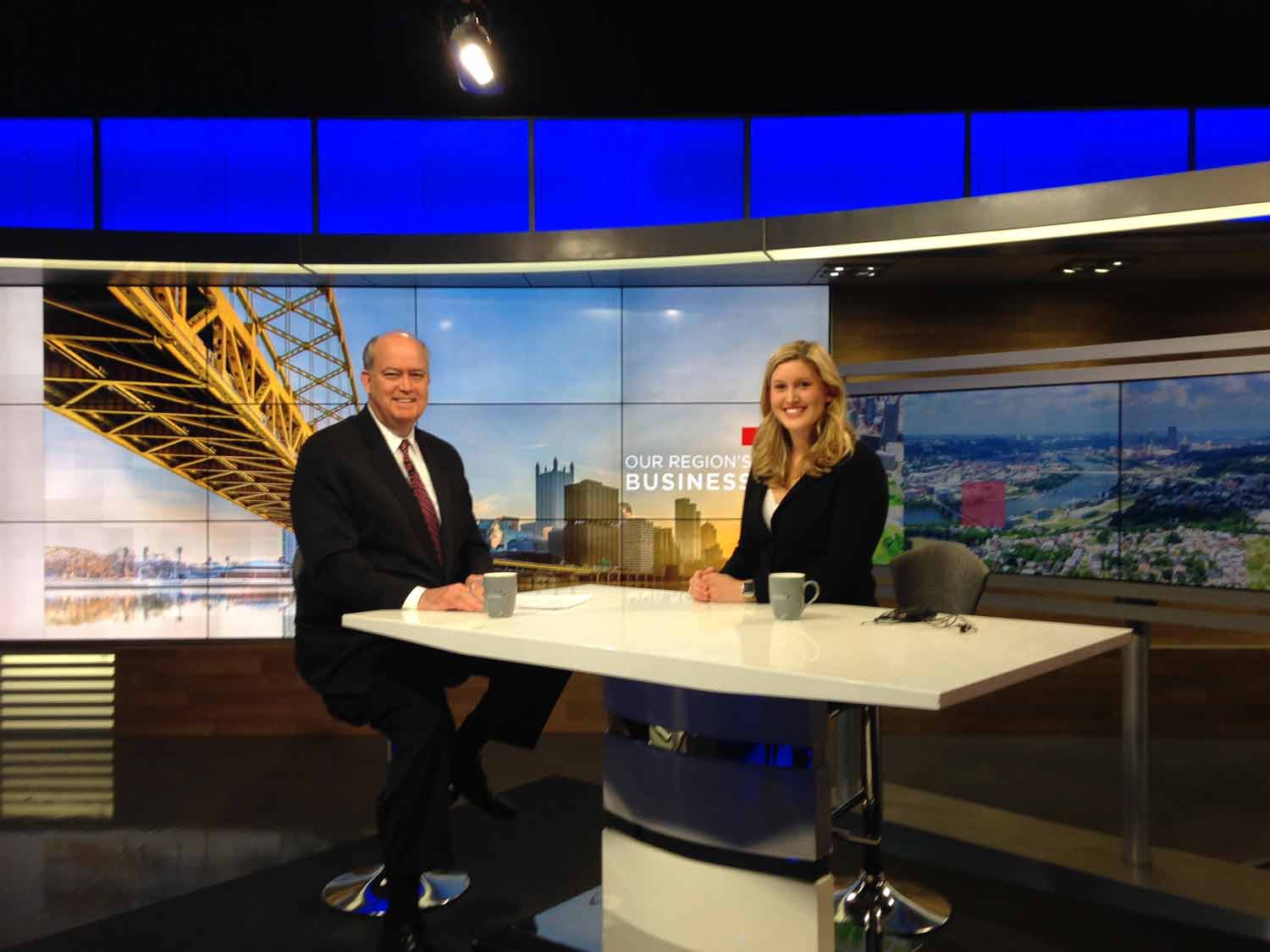
Many of her classmates tried to tell her that she was doing too much or that she shouldn’t be so involved in certain things, especially as her classes progressively became harder.
Kassalen’s response? “The biggest key to success will be to surround yourself with a support system of people telling you that you can do it."
“I am motivated by the idea that I can actually make a difference. The driver for that is that I, again, have a support system believing in me and telling me I can do it. I always feel like I am a part of something bigger than myself, and I always feel like I will be representing Virginia Tech and the College of Engineering,” Kassalen said. “I want to keep pushing myself to achieve the future my support system there knows that I am capable of.”
If you want to have an impact on our students and faculty like those featured in this magazine, go here to support the College of Engineering. For more information, call (540) 231-3628.
-
Article Item
-
Article Item
-
Article Item
